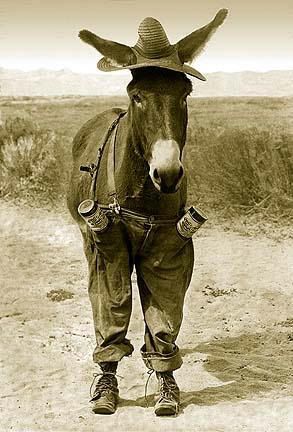Post by joyce on Feb 25, 2008 4:42:41 GMT -6
I saw a show about these critters yesterday afternoon. There is a farm with a bunch of em about 60 miles from here. I tried to see if they had a website but didn't have any luck. I wouldn't mind having some of em. 
Alpacas produce one of the world’s most luxurious fibers and come in more colors than any other fiber-producing animal. They are shorn annually without harm to the alpaca.
Alpacas have padded feet and are gentle on the land. They prefer to graze on tender grasses and clip them off rather than pull them up by the roots.
Alpacas are modified ruminants that convert grass and hay to energy very efficiently and, therefore, eat less than most livestock.
Alpacas deposit their bean-like droppings in communal dung piles, controlling the spread of parasites and making pasture clean-up easy.
Alpacas are non-aggressive and fairly easy to handle. They have no horns, claws or hooves. Adult alpacas generally weigh from 110 to 185 lbs.
Alpacas give birth to one baby (cria) per year. Twins are extremely rare. The gestation period is generally 335 to 355 days.
Alpacas have a life expectancy of 15 to 25 years.
Alpacas rarely challenge a fence, can be pastured at 5 to 10 animals per acre and require only minimal shelter to protect them from weather extremes.
Alpacas are relatively disease-resistant.
Alpacas are intelligent, quiet and easily trained to halter and lead.
Alpacas are a fine livestock investment and can be fully insured against loss.
www.ilovealpacas.com/
www.alpacas.com/alpacalibrary/


Alpacas produce one of the world’s most luxurious fibers and come in more colors than any other fiber-producing animal. They are shorn annually without harm to the alpaca.
Alpacas have padded feet and are gentle on the land. They prefer to graze on tender grasses and clip them off rather than pull them up by the roots.
Alpacas are modified ruminants that convert grass and hay to energy very efficiently and, therefore, eat less than most livestock.
Alpacas deposit their bean-like droppings in communal dung piles, controlling the spread of parasites and making pasture clean-up easy.
Alpacas are non-aggressive and fairly easy to handle. They have no horns, claws or hooves. Adult alpacas generally weigh from 110 to 185 lbs.
Alpacas give birth to one baby (cria) per year. Twins are extremely rare. The gestation period is generally 335 to 355 days.
Alpacas have a life expectancy of 15 to 25 years.
Alpacas rarely challenge a fence, can be pastured at 5 to 10 animals per acre and require only minimal shelter to protect them from weather extremes.
Alpacas are relatively disease-resistant.
Alpacas are intelligent, quiet and easily trained to halter and lead.
Alpacas are a fine livestock investment and can be fully insured against loss.
www.ilovealpacas.com/
www.alpacas.com/alpacalibrary/















 Not sure, but since they're related to camels and llamas, probably.
Not sure, but since they're related to camels and llamas, probably.  Well, if you see someone has some of those, you will know they got extra money they don't need for bills. Those are really expensive. Yep, a little too steep for pets.
Well, if you see someone has some of those, you will know they got extra money they don't need for bills. Those are really expensive. Yep, a little too steep for pets.